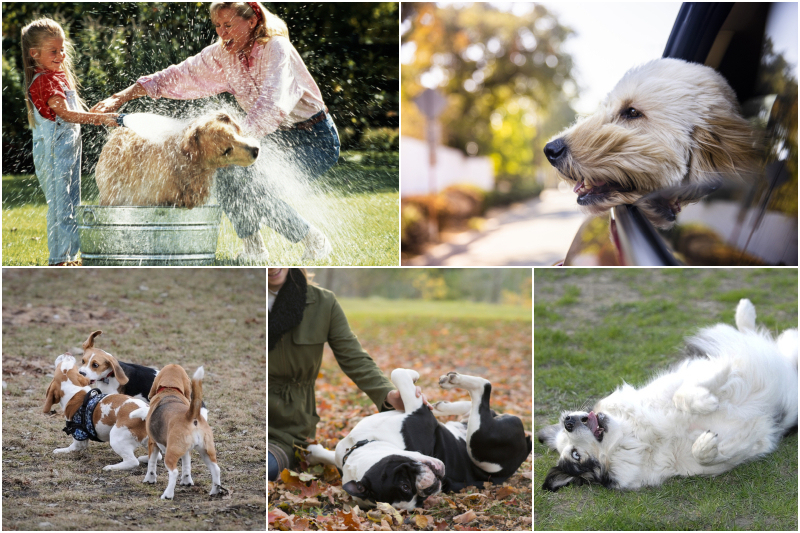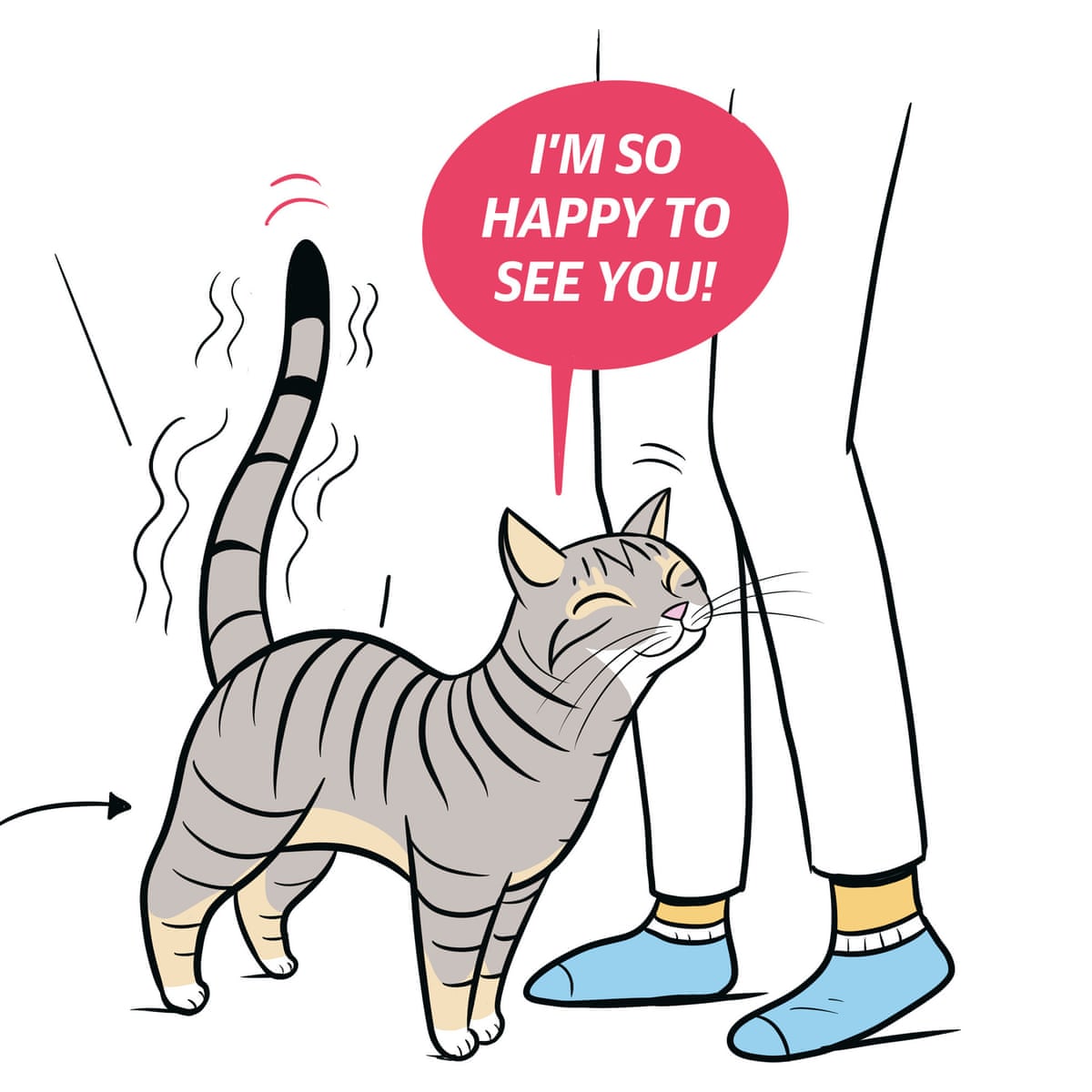When a dog pees on you, it can indicate submissive behavior or a desire to mark their territory. This can be caused by fear, anxiety, or the need to assert dominance.
It is important to rule out any medical issues and address the underlying psychological or emotional problem. Dogs may also urinate when excited or anxious, especially if they are puppies. Understanding the reasons behind this behavior can help pet owners find effective solutions to prevent it from happening.

Credit: www.domesticatedcompanion.com
Understanding Submissive Urination
Submissive urination is when a dog pees as a response to fear or anxiety. Triggers such as punishment or a loud voice can cause dogs to urinate submissively. It is important to understand this behavior and address any underlying causes.
Causes Of Submissive Urination
Submissive urination in dogs is commonly triggered by fear and anxiety. The following factors can cause a dog to urinate submissively: 1. Approach of a person: Dogs who are fearful or anxious may urinate when someone approaches them. This can be due to past negative experiences or a lack of socialization. 2. Punishment or scolding: Harsh disciplinary actions, such as yelling or physical punishment, can elicit submissive urination in dogs. They may feel intimidated and react by urinating. 3. Deep and loud voice: Dogs are sensitive to vocal tone and volume. A loud or deep voice can be perceived as threatening, causing them to exhibit submissive urination.Symptoms And Behaviors Associated With Submissive Urination
When a dog engages in submissive urination, they exhibit specific symptoms and behaviors. These may include: 1. Urinating when greeted: Dogs with submissive urination often urinate when they are greeted by their owners or other people. This is a way of showing submission and appeasing the other person. 2. Tail tucking: The dog may tuck their tail between their legs as a sign of fear and submissiveness. 3. Cowering or low posture: Submissive dogs may lower their posture, crouch down, or even roll onto their back to demonstrate their submission. 4. Avoiding eye contact: Dogs with submissive urination may avoid direct eye contact to avoid confrontation. 5. Trembling or shaking: Fear and anxiety can cause dogs to physically tremble or shake when engaging in submissive urination.Tips For Managing And Preventing Submissive Urination
Managing and preventing submissive urination requires a patient and understanding approach. Here are some tips to help you address this issue: 1. Avoid punishment: Instead of using punishment, focus on positive reinforcement and reward-based training techniques to build your dog’s confidence. 2. Gradual socialization: Gradually expose your dog to new people and environments, using treats and praise to create positive associations and lessen their anxiety. 3. Calm greetings: When greeting your dog, avoid using excessive excitement or loud voices. Remain calm and move slowly, allowing your dog to approach you at their own pace. 4. Reward calm behavior: Reinforce and reward your dog’s calm and confident behavior with treats and praise. This will help them associate positive experiences with these situations. 5. Consult a professional: If submissive urination persists or worsens despite your efforts, consult with a professional dog trainer or animal behaviorist who can provide personalized guidance. By understanding the causes, symptoms, and behaviors associated with submissive urination, you can effectively manage and prevent this issue, promoting a more confident and relaxed relationship with your furry friend.Territorial Marking And Dominance
One of the possible reasons why a dog may pee on you is territorial marking and dominance. Dogs, being descendants of wolves, have an instinctual need to establish and defend their territory. In the wild, marking their territory with urine serves as a way to communicate and assert dominance over other animals. Although domesticated dogs don’t necessarily need to mark their territory like their wild counterparts, these instincts can still manifest in certain behaviors.
Why Dogs Mark Their Territory
Dogs mark their territory for various reasons. It is a natural behavior that allows them to establish boundaries and communicate with other dogs. When a dog pees on you, it may be their way of claiming you as part of their territory or showing dominance. This behavior can be more common in intact males who are more inclined to mark their territory to attract mates or assert their dominance over other dogs in the area.
Signs Of Territorial Marking Behavior
If your dog pees on you or other objects in the house, it could be a sign of territorial marking. Look out for the following signs:
- Raised leg while peeing
- Peeing on vertical objects
- Repeatedly marking the same spot
- Aggression or possessiveness over certain areas or objects
These signs indicate that your dog is attempting to establish their territory and assert dominance. It’s important to note that territorial marking can occur in both male and female dogs, although it is more commonly seen in intact males.
Strategies For Preventing Territorial Marking
If you’re dealing with territorial marking behavior in your dog, there are several strategies you can employ to help prevent it:
- Spaying or neutering your dog: This can help reduce the hormonal drive behind marking behavior.
- Positive reinforcement training: Reward your dog with treats and praise when they exhibit appropriate behavior and refrain from marking.
- Consistent bathroom routine: Take your dog out for regular bathroom breaks to minimize the need to mark indoors.
- Provide plenty of mental and physical stimulation: Engage your dog in regular exercise and play to reduce anxiety and boredom which can contribute to marking behavior.
- Use deterrents or barriers: Restrict access to areas where marking occurs and use products with scents that discourage marking.
Remember, addressing territorial marking behavior requires consistent training and patience. If you’re struggling to manage the behavior on your own, consider seeking guidance from a professional dog trainer or behaviorist.
Other Factors And Explanations
If your dog has ever peed on you, it can be a confusing and frustrating experience. While medical causes are often the first thing that comes to mind, there are other factors and explanations to consider. This section will explore some of these factors and provide insight into why your dog may be exhibiting this behavior. Understanding the underlying reasons can help you address the issue effectively and create a healthier environment for both you and your furry friend.
Medical Causes For Inappropriate Urination
In some cases, dogs may urinate on their owners due to medical reasons. Conditions like urinary tract infections, bladder stones, or kidney disease can cause a sense of urgency and result in accidents. It’s important to consult with a veterinarian to rule out any underlying health issues before addressing the behavioral aspect of the problem.
Fear And Anxiety-related Urination
Fear and anxiety can play a significant role in a dog’s urination behavior. Submissive urination, in which a dog pees as a response to fear or anxiety, is a common occurrence. This behavior is often triggered by certain actions or situations that the dog perceives as threatening or dominant. Approaching strangers, scolding, or even a deep and loud voice can cause a fearful dog to urinate submissively.
Addressing Behavioral Issues And Training
Understanding and addressing the underlying behavioral issues is crucial to prevent your dog from peeing on you. Positive reinforcement techniques and consistent training can help build your dog’s confidence and reduce anxiety-induced urination. Providing a safe and comfortable environment for your dog, as well as establishing clear boundaries and routines, can also contribute to resolving this behavior.
Remember, it’s important to approach the issue with patience and empathy. Punishing or scolding your dog for urinating on you will only exacerbate the problem and potentially worsen their anxiety. Consulting with a professional dog trainer or behaviorist can provide further guidance and support in addressing and modifying this behavior.

Credit: www.theguardian.com

Credit: www.amazon.com
Frequently Asked Questions Of What Does It Mean When A Dog Pees On You
Why Would A Dog Urinate On A Person?
A dog may urinate on a person due to submissive behavior and fear. Triggers like approaching people, punishment, and loud voices can cause a dog to urinate submissively. It’s important to rule out any medical causes and consult with a veterinarian.
Why Would A Dog Pee On Your Foot?
A dog may pee on your foot due to submissive urination, which is a response to fear or anxiety. It could also be marking territory. Consult a veterinarian to rule out any medical causes and address the behavior.
Why Does My Dog Lift His Leg And Pee On Me?
Dogs may lift their leg and pee on you due to submissive urination or urine-marking behavior. Submissive urination occurs out of fear, while urine-marking is a territorial behavior. It’s important to rule out any medical issues and consult a veterinarian for guidance.
To prevent unwanted urination, consider training and addressing any underlying anxiety or dominance issues.
How Do Dogs Mark Their Owners?
Dogs mark their owners by rubbing their bodies against them, releasing scent glands from their toe pads, expressing anal glands, and pooping in specific locations. Urine marking is one of several methods dogs use to scent-mark.
Conclusion
If your dog has peed on you, it may be a sign of submissive urination or marking behavior. Submissive urination is triggered by fear or anxiety, while marking behavior is a way for dogs to assert their dominance or establish boundaries.
To address this issue, it is important to consult with a veterinarian to rule out any medical causes and implement behavioral training techniques. Remember, understanding the underlying reasons behind your dog’s behavior is key to finding a resolution.



